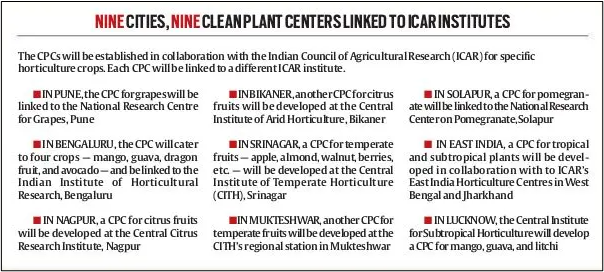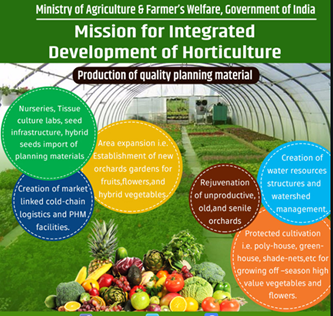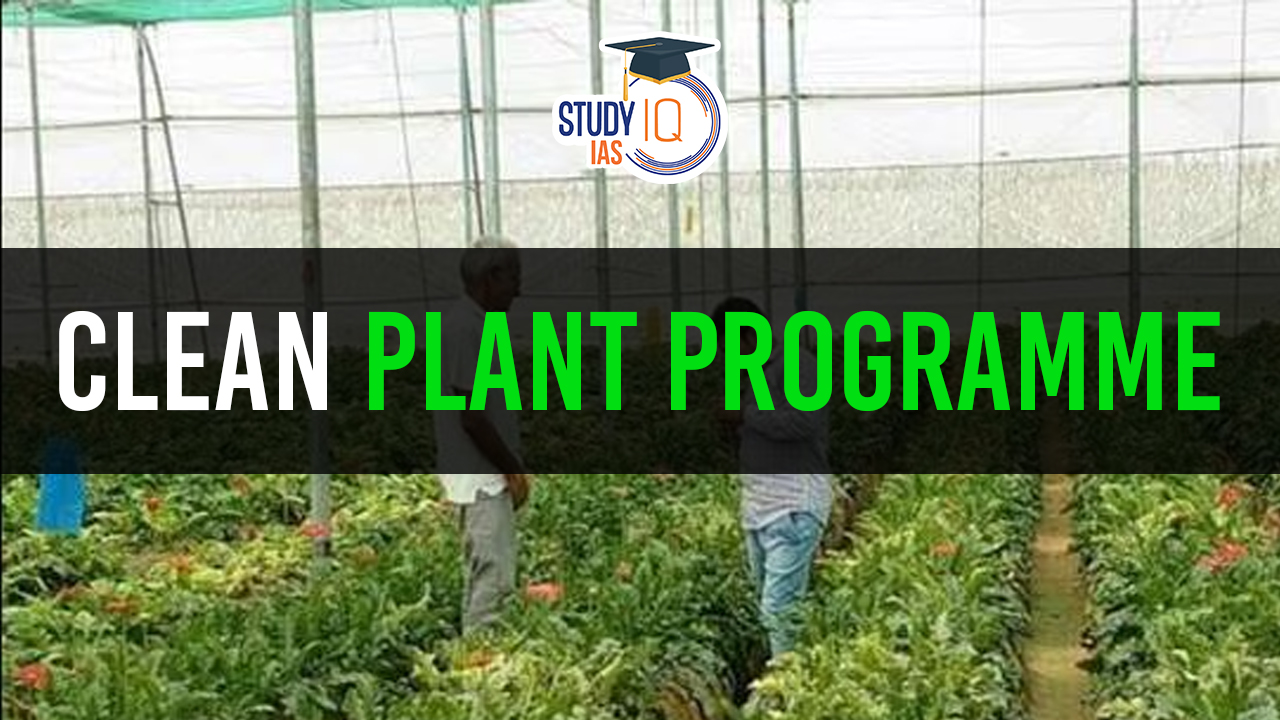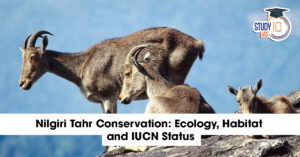Table of Contents
The Government of India and the Asian Development Bank (ADB) signed a $98 million loan to improve horticulture crop farmers’ access to certified disease-free planting materials under Clean Plant Programme.
Clean Plant Programme (CPP)
- CPP will have 3 components:
- Clean Plant Centres,
- Certification and legal framework and
- Enhanced Infrastructure.
- The programme will be implemented by National Horticulture Board in association with the Indian Council of Agricultural research (ICAR).
Features
- CPP will provide access to virus-free, high-quality planting material, leading to increased crop yields and improved income opportunities.
- Streamlined certification processes and infrastructure support will enable nurseries to efficiently propagate clean planting material, fostering growth and sustainability.
- The Programme will actively engage women farmers in its planning and implementation, ensuring their access to resources, training and decision-making opportunities.
- By producing higher-quality, disease-free fruits, India will strengthen its position as a leading global exporter.

Mission for Integrated Development of Horticulture (MIDH)
- MIDH is a Centrally Sponsored Scheme for the holistic growth of the horticulture sector covering fruits, vegetables, root & tuber crops, mushrooms, spices, flowers, aromatic plants, coconut, cashew, cocoa and bamboo.
- The Ministry of Agriculture and Farmers Welfare is implementing MIDH with effect from 2014-15.
- MIDH is implemented under Green Revolution – Krishonnati Yojana.

Key Benefits of the Clean Plant Programme (CPP)
- Farmers: The CPP will provide access to virus-free, high-quality planting material, leading to increased crop yields and improved income opportunities.
- Nurseries: Streamlined certification processes and infrastructure support will enable nurseries to efficiently propagate clean planting material, fostering growth and sustainability.
- Consumers: The initiative will ensure that consumers benefit from superior produce that is free from viruses, enhancing the taste, appearance, and nutritional value of fruits.
- Exports: By producing higher-quality, disease-free fruits, India will strengthen its position as a leading global exporter, expanding market opportunities and increasing its share in the international fruit trade.
- The Programme will prioritize affordable access to clean plant material for all farmers, regardless of their landholding size or socioeconomic status.
- It will actively engage women farmers in its planning and implementation, ensuring their access to resources, training and decision-making opportunities.
- It will address the diverse agro-climatic conditions across India by developing region-specific clean plant varieties and technologies.


 Graphic Processing Units (GPUs) – Work...
Graphic Processing Units (GPUs) – Work...
 Gold Imports and the Indian Economy – ...
Gold Imports and the Indian Economy – ...
 Nilgiri Tahr Conservation: Ecology, Habi...
Nilgiri Tahr Conservation: Ecology, Habi...




















